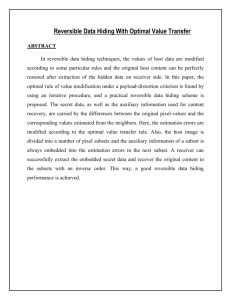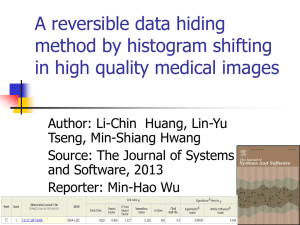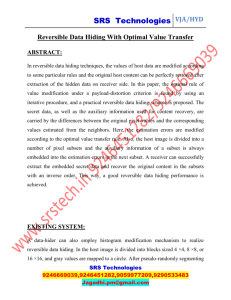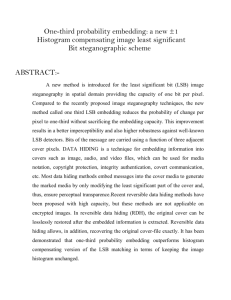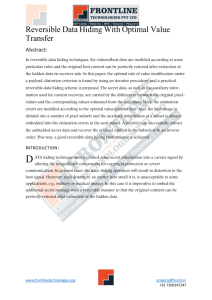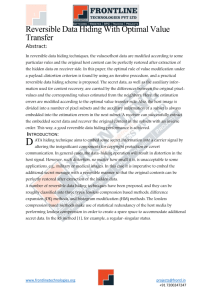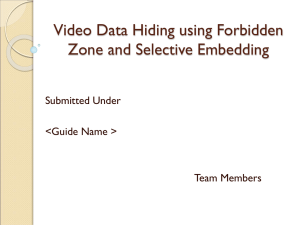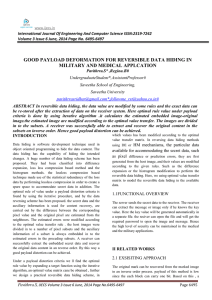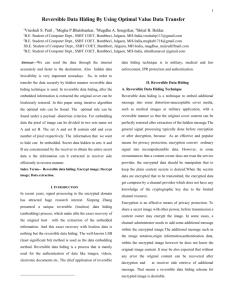“Reversible Data Hiding With Optimal Value Transfer” IEEE
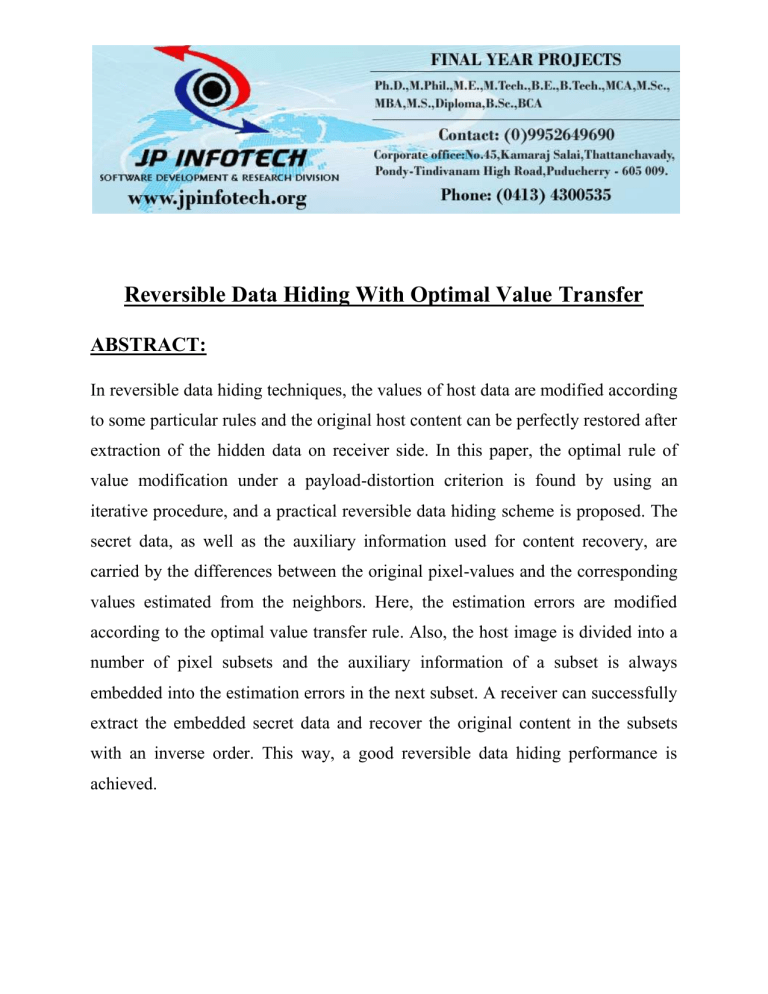
Reversible Data Hiding With Optimal Value Transfer
ABSTRACT:
In reversible data hiding techniques, the values of host data are modified according to some particular rules and the original host content can be perfectly restored after extraction of the hidden data on receiver side. In this paper, the optimal rule of value modification under a payload-distortion criterion is found by using an iterative procedure, and a practical reversible data hiding scheme is proposed. The secret data, as well as the auxiliary information used for content recovery, are carried by the differences between the original pixel-values and the corresponding values estimated from the neighbors. Here, the estimation errors are modified according to the optimal value transfer rule. Also, the host image is divided into a number of pixel subsets and the auxiliary information of a subset is always embedded into the estimation errors in the next subset. A receiver can successfully extract the embedded secret data and recover the original content in the subsets with an inverse order. This way, a good reversible data hiding performance is achieved.
EXISTING SYSTEM:
A data-hider can also employ histogram modification mechanism to realize reversible data hiding. In the host image is divided into blocks sized 4 ×4, 8 ×8, or
16 ×16, and gray values are mapped to a circle. After pseudo-randomly segmenting each block into two sub-regions, rotation of the histograms of the two sub-regions on this circle is used to embed one bit in each block. On the receiving side, the original block can be recovered from a marked image in an inverse process.
Payload of this method is low since each block can only carry one bit. Based on this method, a robust lossless data hiding scheme is proposed, which can be used for semi-fragile image authentication. A typical HM method presented for utilizes the zero and peak points of the histogram of an image and slightly modifies the pixel grayscale values to embed data into the image. In binary tree structure is used to eliminate the requirement to communicate pairs of peak and zero points to the recipient, and a histogram shifting technique is adopted to prevent overflow and underflow. The histogram modification mechanism can also be implemented in the difference between sub-sampled images and the prediction error of host pixels and several good prediction approaches have been introduced to improve the performance of reversible data hiding.
DISADVANTAGES OF EXISTING SYSTEM:
In these reversible data hiding methods, a spare place can always be made available to accommodate secret data as long as the chosen item is compressible, but the capacities are not very high.
Payload of this method is low since each block can only carry one bit.
PROPOSED SYSTEM:
In this paper, we will find the optimal rule of value modification under a payloaddistortion criterion. By maximizing a target function using iterative algorithm, an optimal value transfer matrix can be obtained. Furthermore, we design a practical reversible data hiding scheme, in which the estimation errors of host pixels are used to accommodate the secret data and their values are modified according to the optimal value transfer matrix. This way, a good payload-distortion performance can be achieved
ADVANTAGES OF PROPOSED SYSTEM:
A smarter prediction method is exploited to make the estimation errors closer to zero, a better performance can be achieved, but the computation complexity due to the prediction will be higher.
The payload-distortion performance of the proposed scheme is excellent.
The host image is divided into a number of subsets and the auxiliary information of a subset is always embedded into the estimation errors in the next subset. This way, one can successfully extract the embedded secret data and recover the original content in the subsets with an inverse order.
SYSTEM CONFIGURATION:-
HARDWARE REQUIREMENTS:-
Processor
Speed
RAM
Hard Disk
Key Board
Mouse
Monitor
- Pentium –IV
- 1.1 Ghz
- 256 MB(min)
- 20 GB
- Standard Windows Keyboard
- Two or Three Button Mouse
- SVGA
SOFTWARE REQUIREMENTS:
• Operating system : - Windows XP.
• Coding Language : C#.Net
REFERENCE:
Xinpeng Zhang, Member, IEEE “Reversible Data Hiding With Optimal Value
Transfer”
IEEE TRANSACTIONS ON MULTIMEDIA, VOL. 15, NO. 2,
FEBRUARY 2013.
